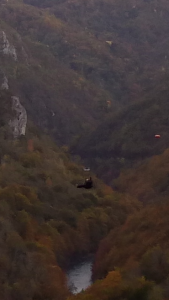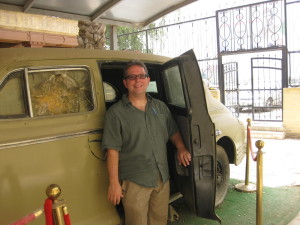In his capacity as Vice President of MSF / Doctors Without Borders USA, Associate Professor of Middle Eastern History Nabil Al-Tikriti joined a three-person panel to discuss global migration issues and MSF’s involvement in rescuing refugee populations in Philadelphia on Thursday, Nov. 10. Stephen Figge of MSF USA Communications led the panel discussion, and the other panelist was Mark Leirer, an American nurse who was recently on one of the three MSF rescue ships. The discussion was preceded by a donor event, and the screening of a documentary film on European migration. The entire event took place at the Academy of Natural Sciences of Drexel University, and was part of the concluding run of MSF USA’s “Forced From Home” Exhibit, which was staged in New York, Queens, Washington, Boston, Pittsburgh, and Philadelphia between September and November.
Previously, Al-Tikriti took his entire “History of Genocides” Freshman Seminar class to the exhibit when it was staged in Washington. For further information on the exhibit, which next should tour the West Coast in 2017, see: http:\forcedfromhome.com.


